We meet in a branch of McDonald’s on Dasyue Rd (大學路) just opposite the leafy campus of Tainan’s National Cheng Kung University, where Bruce Humes occasionally likes to “sneak into the Engineering Department’s shaded, Japanese-style courtyard for a snack.”
It’s not yet 7am but Humes has already been up for two hours scanning the news before he begins translating a new novel, Hollowed Out, by Liu Liangcheng (劉亮程).
“This is the only place open early enough for me,” he says over coffee.
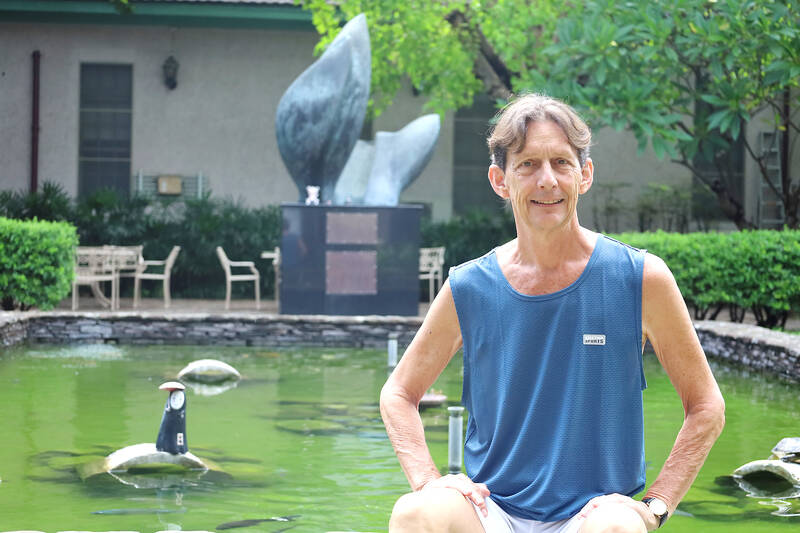
Photo: Thomas Bird, Taipei Times
The American polyglot is enjoying a comfortable life in Tainan translating contemporary fiction and non-fiction.
“I lived in Taipei in 1978,” he says, “and I could never get anything dry during the plum rains. The weather is much more pleasant here, plus living costs are lower. From my perspective, having spent years in China’s Shanghai and Shenzhen, Tainan is a village. You can cycle and walk everywhere.”
KEEPING BOOKISH
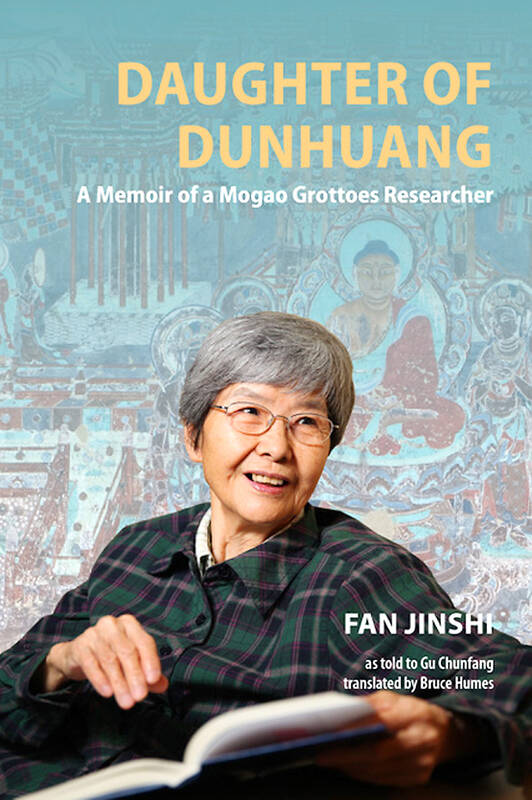
Photo courtesy: Bruce Humes
Notwithstanding the warm climes and laidback atmosphere in the neighborhood where Humes lives, he’s nothing if not busy and can often be found at the National Museum of Taiwan Literature (國立臺灣文學館) writing and translating. He’s best known for renditions of two novels, Wei Hui’s (衛慧) Shanghai Baby (1999) and The Last Quarter of the Moon (2005) by Chi Zijian (遲子建). But his latest two works, both published this year, are decidedly more academic.
The first is Mapping Civilizations Across Eurasia by H.K. Chang (張信剛), a half-Manchu, half-Han scholar who was born in China’s Shenyang, raised in Taiwan and earned a PhD in biomedical engineering in the US.
Humes says Chang spent much time roaming the Silk Road and has been to most of the main sites from Xian over to Turkey and down to India. He adds that he’s worked on five of Chang’s books, most of which are about Eurasia, but they often emphasize the impact of westward-bound East Asian conquerors, such as the Mongols and Turkic peoples, on Central and West Asia.
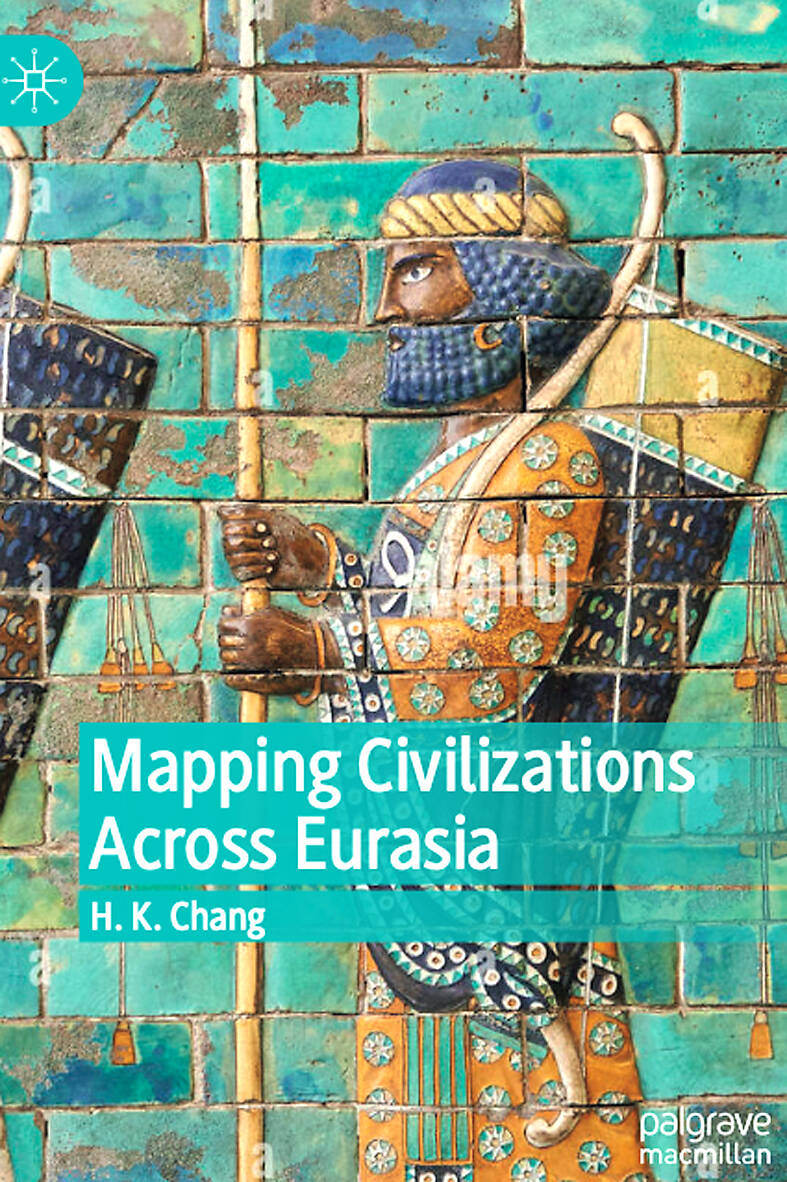
Photo courtesy: Bruce Humes
The other recently-published title Humes translated is Daughter of Dunhuang: A Memoir of a Mogao Grottoes Researcher by Fan Jinshi (樊錦詩).
“She’s just an incredible lady,” Humes says. “An archaeology graduate who spent 50-plus years in the desert overseeing the restoration and preservation of Buddhist cave-temples in Gansu Province. Raised in comfortable Shanghai, she endures all kinds of hardships while trying to save those Silk Road murals.”
The original sold half a million copies in Chinese, and will eventually appear in Hindi, Russian, Farsi and Turkish.
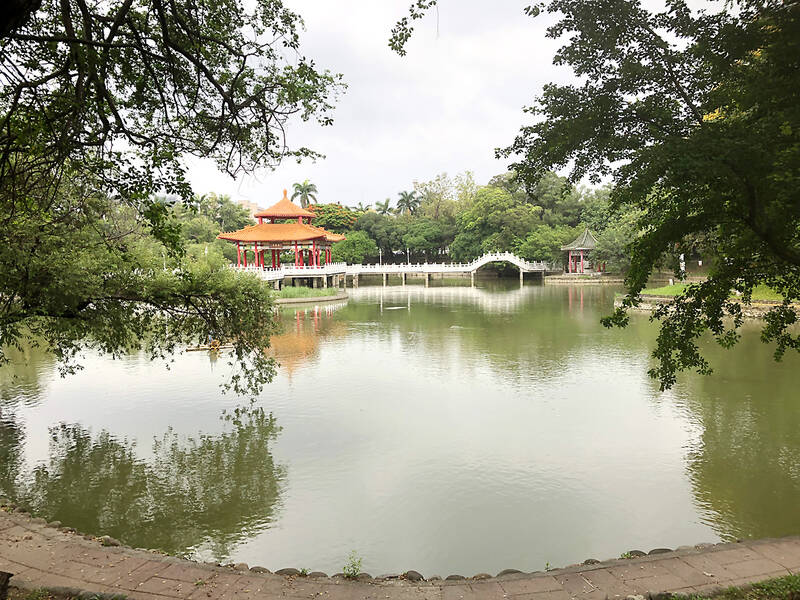
Photo: Thomas Bird, Taipei Times
LIFE’S JOURNEY
Outside of the two decades he spent working in the People’s Republic of China (PRC), Humes, a keen traveler, has been fortunate enough to call a number of exotic locales home, including Penang and Istanbul. But his most enduring overseas relationship has been with Taiwan.
“After returning to the University of Pennsylvania from a year-aboard in Sorbonne in Paris, I felt I’d got French under my belt, so I dropped it in favor of Chinese.”
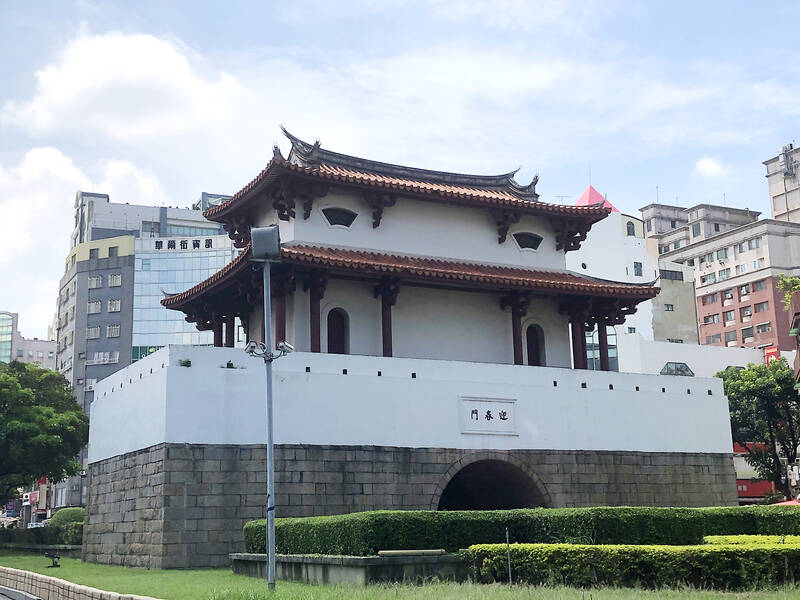
Photo: Thomas Bird, Taipei Times
Upon graduation, Humes waited on tables for several months, jealously guarding his tips in order to begin his East Asian adventure.
“When I had enough money, I bought a one-way ticket to Taipei.”
Humes lodged in free homestays and audited classes at National Taiwan Normal University to hone his language skills, living in what is today’s Banciao District (板橋) in New Taipei City.
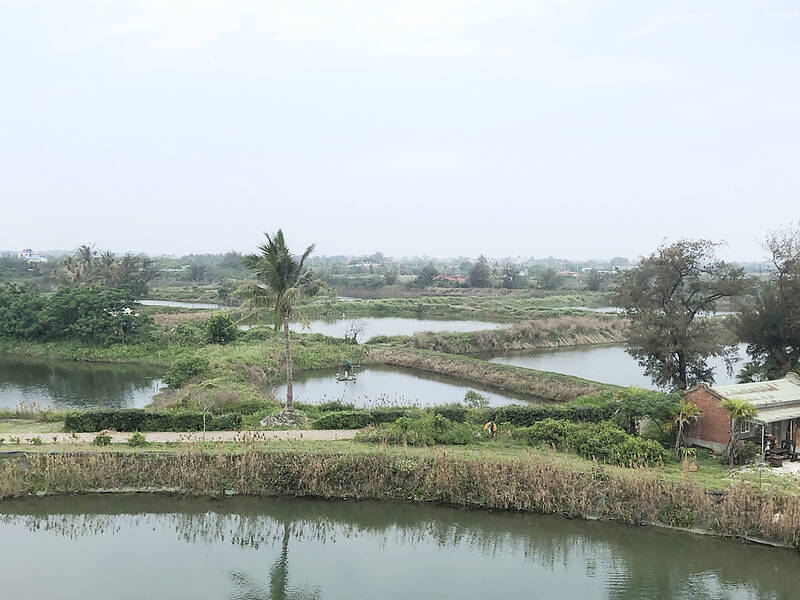
Photo: Thomas Bird, Taipei Times
“It was just an incredibly chaotic place. Within three months I must have seen four or five motorcyclists dead on the road,” he says.
Humes describes a very different cityscape from the malls and skyscrapers of contemporary Taipei: “First-floor garage-like shops dominated, with the owners working in front and sleeping in the back.”
Despite describing the Taiwanese capital as “filled with a unique fragrance melding motorcycle fumes and open-air sewage,” Humes recalls his time in Taipei fondly.
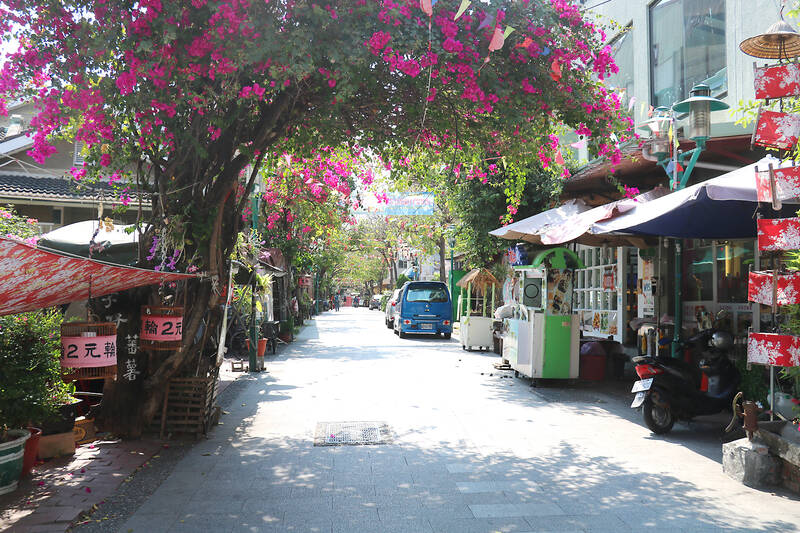
Photo: Thomas Bird, Taipei Times
‘WELCOME TO CHINA’
The political climate of the day also contrasted starkly with our time.
“‘Welcome to China!’ was the standard greeting. Censorship was omnipresent and lots of topics were taboo. I remember saying something mildly derogatory about Chiang Kai-shek (蔣介石) and being told off,” he says.
When it was announced that the US would formally recognize the communist PRC, it was known as the “great betrayal.”
One of the few foreigners in the Chinese department at National Taiwan Normal University, a committee brought a big character poster to his house, denouncing then-US president Jimmy Carter for breaking ties with the Republic of China while establishing relations with the “Communist bandits.”
“They pressed me to put my name to it,” he says.
After a year in Taiwan, Humes moved to Hong Kong to be with his sweetheart and flesh out his career, but would continue to visit regularly. In 1988, Humes returned again, this time grieving the loss of his mother Joy Humes, a multi-lingual professor of French literature from whom he’d inherited his passion for languages.
“I came for about four months as part of my recuperation process to study ancient poetry at Taipei Language Institute. My teacher would help me do a deep dive into a single poem each day,” he says of how the melancholy lyrics penned by Tang-era scribes helped him through this sad period.
It wasn’t, however, until 2015 that Humes would return to Taiwan to live. He’d been living in China for years and set up a blog, which attracted attention.
“My activities apparently attracted official attention and I was ‘invited to take tea,’” he says, using the popular euphemism for an informal interrogation. “Unfortunately, under Xi Jinping (習近平), the space for creative writing was closing and there was a lot less you were permitted to write about, especially if you were not Han.”
Internet censorship expedited Humes’ departure, a pioneer in what he dubs “the great China fallout” that saw many old China hands scramble for the exit gate even before the pandemic.
Although he regularly travels elsewhere in Asia, and beyond, he describes Tainan “as close as anything I’ve had to somewhere that feels like home,” adding, “Of course I wanted to continue living in the Sinophone world. But I think it’s largely because I’ve found people here so tolerant and kind.”

This is the year that the demographic crisis will begin to impact people’s lives. This will create pressures on treatment and hiring of foreigners. Regardless of whatever technological breakthroughs happen, the real value will come from digesting and productively applying existing technologies in new and creative ways. INTRODUCING BASIC SERVICES BREAKDOWNS At some point soon, we will begin to witness a breakdown in basic services. Initially, it will be limited and sporadic, but the frequency and newsworthiness of the incidents will only continue to accelerate dramatically in the coming years. Here in central Taiwan, many basic services are severely understaffed, and

Jan. 5 to Jan. 11 Of the more than 3,000km of sugar railway that once criss-crossed central and southern Taiwan, just 16.1km remain in operation today. By the time Dafydd Fell began photographing the network in earnest in 1994, it was already well past its heyday. The system had been significantly cut back, leaving behind abandoned stations, rusting rolling stock and crumbling facilities. This reduction continued during the five years of his documentation, adding urgency to his task. As passenger services had already ceased by then, Fell had to wait for the sugarcane harvest season each year, which typically ran from

It’s a good thing that 2025 is over. Yes, I fully expect we will look back on the year with nostalgia, once we have experienced this year and 2027. Traditionally at New Years much discourse is devoted to discussing what happened the previous year. Let’s have a look at what didn’t happen. Many bad things did not happen. The People’s Republic of China (PRC) did not attack Taiwan. We didn’t have a massive, destructive earthquake or drought. We didn’t have a major human pandemic. No widespread unemployment or other destructive social events. Nothing serious was done about Taiwan’s swelling birth rate catastrophe.

Words of the Year are not just interesting, they are telling. They are language and attitude barometers that measure what a country sees as important. The trending vocabulary around AI last year reveals a stark divergence in what each society notices and responds to the technological shift. For the Anglosphere it’s fatigue. For China it’s ambition. For Taiwan, it’s pragmatic vigilance. In Taiwan’s annual “representative character” vote, “recall” (罷) took the top spot with over 15,000 votes, followed closely by “scam” (詐). While “recall” speaks to the island’s partisan deadlock — a year defined by legislative recall campaigns and a public exhausted